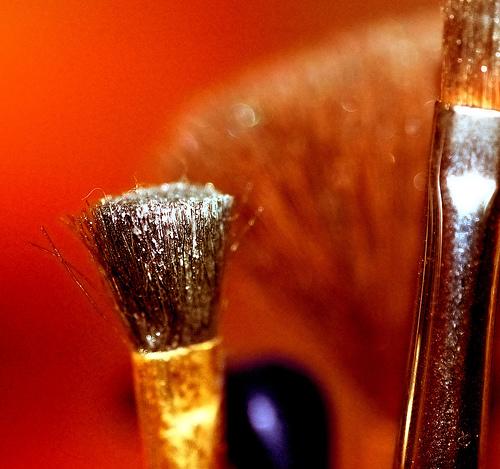You know you shouldn’t keep mascara for more than three months; it rarely lasts that long, anyway. Also, your favorite eyeshadow isn’t around long enough to need an expiration date. But have you considered your makeup brushes? Good-quality brushes can last for years, which is wonderful on the budget; it can be awful for your complexion, however, if you don’t wash them regularly and allow that accumulated dirt and bacteria to go right back on your skin every time you apply powder.
Minimum: Once Weekly
You heard it right–once a week should be the minimum and not just for the over-achievers or the germaphobic. Choose a regular day of the week, or have a little brush cleaning ritual every weekend. Before you paint your fingernails is best.
Problem Skin: Daily
If you deal with acne or random outbreaks, have rosacea or very sensitive skin, you should be washing your makeup brushes daily. Simply make it part of your regular beauty regime every morning. It only takes a few extra moments to wash those brushes and your skin will thank you. Maybe not out loud, but still, you’ll notice.
Using Shampoo
The most common method of cleaning makeup brushes is to simply hold each brush under warm running water, lather up with a tiny bit of shampoo, rinse clean and then allow to air dry. When drying, stand the brushes up or lay them so the bristles are hanging off the edge of the sink; you don’t want them to simply sit in accumulated water and stay soaked all day. They won’t be clean and it can cause damage to the brushes. For those with very sensitive skin, a gentle makeup remover or a baby shampoo might be the best choice for cleansing makeup brushes.
Using Special Products
There are special makeup brush cleansers available and they will work fine to clean your makeup brushes. Essentially, most are the same as any gentle cleanser. Play around and see what works best on your brushes and if your skin seems to react to any particular product. Be sure that whatever cleansing option you choose, you don’t have any soapy residue left in your brushes after the final rinse.
When to Replace
Good-quality brushes can endure a lot of washing and using. All good things do come to an end eventually, so when you notice the bristles getting fuzzy, breaking off, or refusing to lay flat, it’s time to replace the brush.



